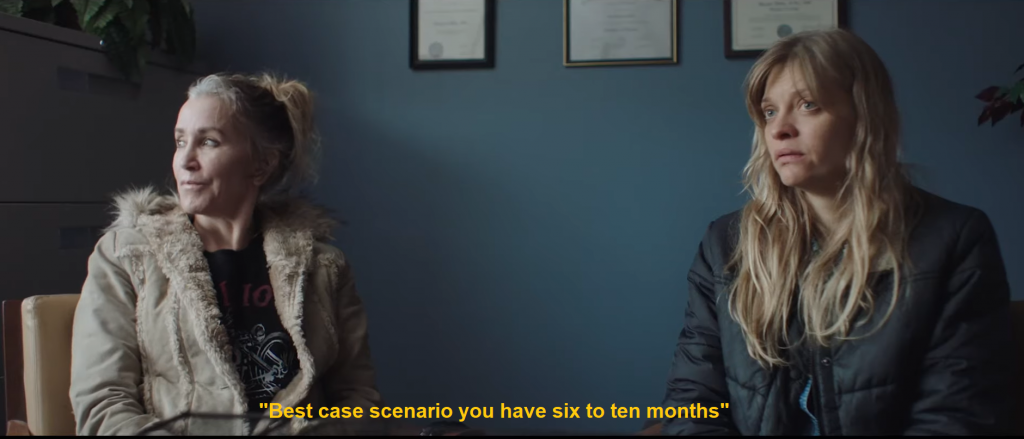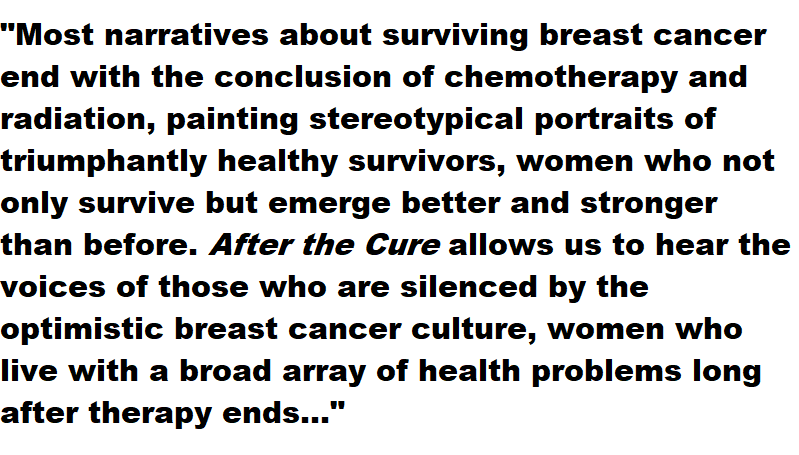Directed by Amy Jo Johnson
A dark comedy about a young woman caring for her alcoholic mother, Tammy, who has been diagnosed with terminal cancer. Despite the diagnosis and their appearance on a talk show to discuss her impending death, Tammy persistently refuses to actually die.

The film ends with her taking her own life as her daughter watches. This film represents multiple attempts by the characters to take control of the narrative of Tammy’s illness and impending death while navigating their relationships with each other. The ending, in which Tammy takes her own life, is therefore a radical act of self-reclamation which her daughter recognizes and accepts.
For most of the movie it seems to be a pretty typical cancer narrative, but by taking her life Tammy escapes the survivor/victim dichotomy by dying on her own terms. Tammy is also notably a… walking disaster. Even if she was miraculously cured of her cancer, she would never be a well or whole person.
This film is also notable because “black comedy” tone refuses and even mocks the traditional solemn and sanctified tone of cancer narratives. It attacks that form of narrative-making, and the impulse to capitalize off your cancer experience.



